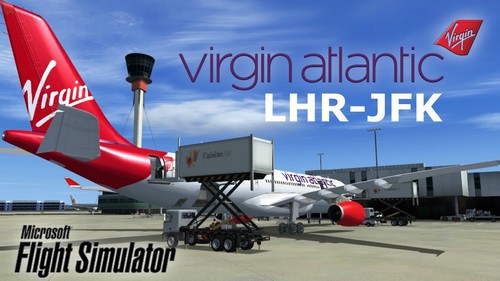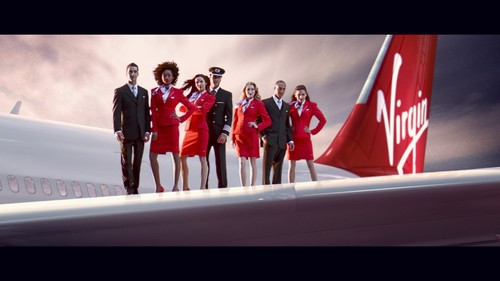Virgin Atlantic is a British Airline founded by the ace businessman Richard Branson. Owned by the Virgin Atlantic Limited, the airline has always been focused on creating differences in each of their services while also driving efficiency and effectiveness.
The airline is the seventh largest passenger carrier in the world and it carries 5.4 million passengers to date and has three classes economy, premium, and business class. When the airline was started in the year in the year 1984 they had only one Boeing 737 which was leased out and currently, the business has around 46 aircraft in its fleet today which is indicative of the progress of the business.
The airline registered an annual turnover of 2.3 billion pounds in 2017 and the airline has carried around 230 million kilograms of cargo across the world. Currently, Virgin Atlantic is owned by Virgin Group & Singapore Airlines. Virgin group has a stake of 51% of the company and Singapore owns 49%. The airline flies from the United Kingdom to North America, the Caribbean, Africa, the Middle East, Asia, and Australia.
Table of Contents
Strengths in the SWOT analysis of Virgin Atlantic
Strengths are defined as what each business does best in its gamut of operations which can give it an upper hand over its competitors. The following are the strengths of Virgin Atlantic :
- Cool Image: Virgin Atlantic has been able to propagate a cool image, primarily because of the image that Richard Branson has. It is also an airline that appeals to the current generation and exuberates youthfulness and vigor.
- Industry trendsetter: Virgin Atlantic was an airline that has been responsible for setting a number of trends in the airline industry. The service standards set by Virgin which is considered to be an innovative company has often been setting service and process benchmarks in the industry.
- Focus on quality: Virgin Atlantic has been focused on quality and they have been diligently following Total Quality Management. They deploy TQM in process improvement and the same has been responsible for significant cost savings and profitability.
- Positioning: Virgin Atlantic is positioned as a value for money brand. Though the tickets are expensive, in comparison to competitors the service quality and personalized attention given to customers are highly superior. The airline is also popular for the superior quality of food as well.
- Multiple customer categories: The airline primarily has three categories namely economy, premium and luxury segments. However, through its standards, the airline can cater to a wide range of audience. By slight ramping up and ramping down of service quality and level of personalization the airline can offer different standards of service to each level.
- Customer satisfaction: Virgin Atlantic has been looking at each minute detail of what each internal and external customer expects from the business and this has ensured that the level of satisfaction is high for each of these customers.
Weaknesses in the SWOT analysis of Virgin Atlantic
Weaknesses are used to refer to areas where the business or the brand needs improvement. Some of the key weaknesses of Virgin Atlantic are:
- Financial Challenges: With Brexit, Virgin Atlantic is going to face a lot of financial challenges since the airline makes most of its spending in dollars but gets revenues in pounds. With the drop in the value of the pound, the business has suffered serious financial losses.
- Poor differentiation: Though Virgin Atlantic was once a pioneer in the airline industry, it was impossible to create a solid difference. Some of the players in the airline industry have been copying Virgin strategies but have been successful in offering a better quality of services. This has resulted in the loss of business and the airline needs to look at other differentiators.
- Perception of being an expensive airline: Many passengers who prefer to travel economy class do not even consider Virgin Atlantic in their list of options since it is perceived as being relatively expensive than its competition.
Opportunities in the SWOT analysis of Virgin Atlantic
Opportunities refer to those avenues in the environment that surrounds the business on which it can capitalize to increase its returns. Some of the opportunities include:
- Change in customer preferences: As more professionals enter into the corporate world the scope for business travel has increased. People are willing to spend more on an aeroplane seat if they are guaranteed comfortable travel since the frequency of travel has increased. This is definitely a positive trend for Virgin Atlantic.
Threats in the SWOT analysis of Virgin Atlantic
Threats are those factors in the environment which can be detrimental to the growth of the business. Some of the threats include:
- Competition: The airline faces a lot of competition from brands such as Lufthansa, Emirates, Air France, Cathay Pacific and British Airways.
- Brexit: With Brexit, the condition of the company has become a critical issue. The decision saw a sudden dip in the number of passengers who were traveling abroad and this, in turn, affected the business of Virgin Atlantic.
Liked this post? Check out the complete series on SWOT

